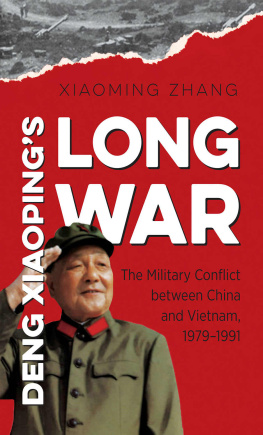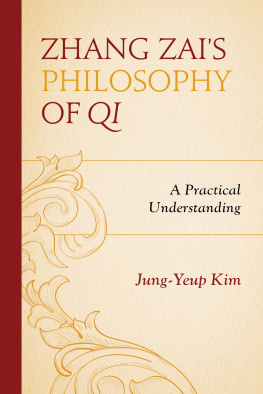CHINESE FOLKLORE STUDIES TODAY
This book is a publication of
Indiana University Press
Office of Scholarly Publishing
Herman B Wells Library 350
1320 East 10th Street
Bloomington, Indiana 47405 USA
iupress.indiana.edu
2019 by Indiana University Press.
All rights reserved
No part of this book may be reproduced or utilized in any form or by any means, electronic or mechanical, including photocopying and recording, or by any information storage and retrieval system, without permission in writing from the publisher. The paper used in this publication meets the minimum requirements of the American National Standard for Information SciencesPermanence of Paper for Printed Library Materials, ANSI Z39.48-1992.
Manufactured in the United States of America
Cataloging information is available from the Library of Congress.
ISBN 978-0-253-04409-9 (hdbk.)
ISBN 978-0-253-04410-5 (pbk.)
ISBN 978-0-253-04411-2 (web PDF)
12345242322212019
To many generations of folklorists
who contribute to the disciplinary development
of folklore studies in China.
CONTENTS
F OLKLORISTICS AS A DISCIPLINE OF CHINESE ACADEMIA INITIATED from Peking University about a century ago. Through its hundred-year history, Chinese folkloristics experienced several shifts of its academic center, now known as the PKU Era, the Sun-Yet San University Era, the Hangzhou Era, the Yanan Era, and so on. During its history, Chinese folkloristics experienced hard times in which classes were cancelled, professors were dispersed, and enrollment ceased. Through their academic practices, generations of Chinese folklorists instilled special characteristics into folklore studies in China and formed Chinese folkloristics as a discipline. China is a country with rich historical documents; Chinese scholars of the humanities intend to develop a tradition of tracing history, and they value historical profundity in academic works on Chinas folklore. Professor Zhong Jingwen proposed that historic folkloristics should be part of Chinese folklore studies. China is a multiethnic country, and ethnic minorities folklore has always been the object of its research. Besides, Chinese folklore studies since its birth has been influenced by foreign folkloristics. Therefore, interaction and dialogue between Chinese and international academia within a global framework has been another characteristic of Chinese folklore studies. The main influences from abroad have been Western Europe, North America, Russia, and Japan. The influence of these regions in terms of theory and methodology can be observed when examining the hundred-year history of Chinese folkloristics. This active participation in international communication is at its peak nowadays. And Chinese folkloristics finds new sources of development in this communication. Today, Chinese folkloristics has spread more broadly within Chinas humanistic studies. It has more students gaining masters and doctorate degrees every year. In some colleges and research institutes, it also has its own faculty, curriculum, and academic programs. In the states political system, folklore study also finds a role as a source of reference, especially in the recent trend of safeguarding intangible cultural heritage. Of course, different voices exist. Some scholars believe working closely with the government risks academic independence. However, UNESCOs call for cultural diversity and safeguarding intangible cultural heritage has gained powerful support from the Chinese government and entertains active participation of Chinese scholars, and it is warmly welcomed among the Chinese people, especially in rural areas and ethnic regions. It is thus observed in contemporary China that communities, academia, the government, and individuals all have their respective pursuits while working toward shared goals at the same time. Therefore, ideas and voices start to intertwine around the discussion of Chinese folk culture. The blossoming of folklore studies in China makes depicting Chinese folkloristics accurately and thoroughly an extremely difficult task. Therefore, this book, in briefly profiling recent developments in Chinese folklore studies in certain subfields, is a practical project. I appreciate the timeliness and transdisciplinary senses in this volume edited by our young scholars of folklore, Lijun Zhang and Ziying You. Their endeavor is much cherished, and, sans doubt, their evaluation of the discipline of folkloristics in Chinese academia is to be listened to with a thoughtful mind and caring heart.
Chao Gejin
CHAO GEJIN is Senior Research Fellow and Director of the Institute of Ethnic Literature at Chinese Academy of Social Sciences (CASS), and Member of CASS. He is the author of Oral Poetics: Formulaic Diction of Arimpils Jangar Singing and Selected Papers on Epic Studies, and the editor of Annual Review of China Folkloristics.
T HIS BOOK WAS INITIATED BY CONVERSATIONS BETWEEN CHINESE and American folklorists at the forum China and US Folklore Collaborations: A Progress Report at the 2015 American Folklore Society annual meeting held in Long Beach, California. Timothy Lloyd chaired the forum, and Chao Gejin, Gao Bingzhong, Song Junhua, Bill Ivy, and Michael Ann Williams were invited speakers. At the forum, Chao Gejin, the president of China Folklore Society, commented on the unequal communication between Chinese and American folklore societies and said: We know more about you than you know about us. Audiences agreed that there was a need to introduce scholarship on Chinese folklore studies for American folklorists. We would like to thank their great vision that inspired us in the work of bridging the gap between Chinese academia and American academia. Gary Dunham, director of Indiana University Press, was at the forum, and he perceived the significance in scholarship exchange and publication. With his support and encouragement, we started to work on this edited volume on Chinese folklore studies. This project was also enthusiastically supported by Jason Baird Jackson, Mark Bender, and many other folklorists. We would like to express our gratitude to them. This volume would not have been possible without the commitment and contribution of the authors. It has been a great privilege, honor, and pleasure for us to work with Yongyi Yue, Junxia Wang, and Levi S. Gibbs. We would like to thank all the brilliant contributors for their hard work and support. Among them, we want to thank Levi in particular for proofreading all the English manuscript chapters before we submitted them. We also want to thank Wenyuan Shao and Yuanhao Zhao, who translated Yongyi Yues article from Chinese into English. Last but not least, thanks are due to three anonymous reviewers of the book manuscript who provided many precious comments and suggestions. Finally, we are thankful to Janice E. Frisch and her colleagues at Indiana University Press for shepherding the project to fruition. There are other colleagues and friends whose names are not listed here; we are grateful for their advice and help.
CHINESE FOLKLORE STUDIES TODAY
T HIS COLLECTION OF ESSAYS ON FOLKLORE DISCOURSE AND practice in contemporary China emerged from our response to the call for advancing and deepening scholarly communication and exchange between American folklorists and Chinese folklorists by introducing Chinese folklore studies to an American audience, especially those who are not yet familiar with Chinese folklore studies through the form of publications. Thus, one of the major purposes of this scholarly work is to illustrate what scholars are working on and what is going on currently in Chinese folklore studies. Contemporary Chinese folklore studies have been opening up to and learning about folklore studies in other parts of the world. The word




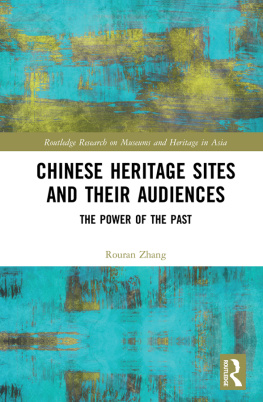
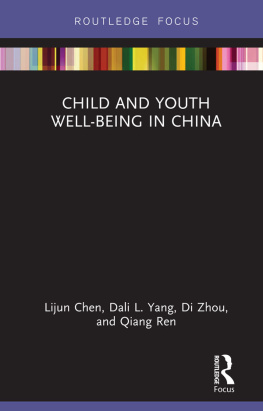
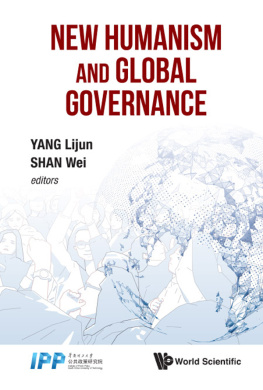

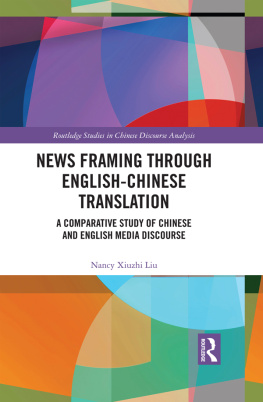
![Zhang Gongzhe [张公者] - Contemporary Chinese Calligraphy [当代中国书法]](/uploads/posts/book/126572/thumbs/zhang-gongzhe-contemporary-chinese.jpg)
